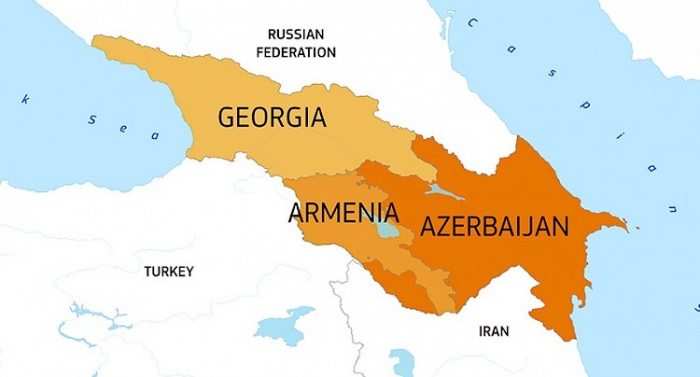The Caucasus, where more than 300 ethnic groups exist, is home to about 2 million Chechens and Avars. The number of Ingush and Lezgi peoples, who do not have a state and live within Russia, is estimated at a million. Three South Caucasus countries were in disputes from time to time. On the eve of Tsarist Russia becoming Lenin’s Russia in 1918, Azerbaijan, Georgia, and Armenia were separated from it. At that time, all three states had difficulties to exist independently. Azerbaijanis came up with the idea of the "Caucasus Federation", which was backed by Georgians but was rejected by Armenians. Then this idea was re-brought to the agenda in different versions.
The most relevant issue concerning the South Caucasus is security. The intra-regional security problem emerged due to the actions of Armenians in 1918. It was the same in 1988, on the eve of the collapse of the USSR. Let’s take a look at the European Parliament’s resolutions of 1987, as well as the US Congress’ resolutions of June and November 1989. It was alleged that Azerbaijan “blockaded” not only Armenia but also Georgia. How can Georgia be blocked? It has geographical access to both Russia and Europe. These examples alone clearly show what information Europe is "fed".
Everything in the South Caucasus should serve regional integration. The presence of foreign forces should be stopped. An integration model that fosters self-sufficiency and security cooperation among the three states should be developed.
Security spending dominates regional budgets. Azerbaijan has reportedly allocated nearly $100 billion to address the aftermath of the Armenian occupation. Azerbaijan's security strategy prioritizes strong leadership over solely relying on military might. For Georgia, political considerations significantly influence security decisions. Georgia has established a security partnership with Turkey and Azerbaijan. Armenia, historically backed by Russia, has occupied Azerbaijani territory and, on occasion, threatened Georgia. The current Iran-Armenia alliance raises concerns for regional stability. Yerevan's pursuit of external security alliances poses a significant challenge.
The economic and then political integration of the region is crucial for its long-term stability. Without this integration, the viability of a tristate region may be at risk. Armenia's recent shift towards Europe presents an opportunity. However, European support should be contingent on Armenia's commitment to regional integration efforts. Diverging from this path could create new security challenges involving Europe.
Mubariz Ahmadoglu, Director of the Center for Political Innovations and Technologies, exclusively for AzVision.az
More about:
















































